By SHANTINI SUNTHARAJAH
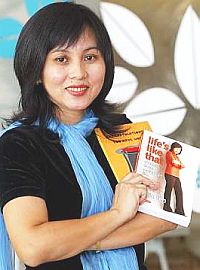 SIMON Khong (not his real name) was loath to admit that he had cheated in a contest a few years ago.
SIMON Khong (not his real name) was loath to admit that he had cheated in a contest a few years ago.“I don’t really feel comfortable talking about it,” says the 28-year-old.
“But I suppose it’s all right as long as I remain anonymous.”
Khong, an engineer in the IT industry, confessed that he had resorted to plagiarism when he entered a contest sponsored by a well-known food company.
“Participants were supposed to include the wrapper of a certain kind of chocolate and complete a slogan in not more than 15 words,” he says.
The top prize was a television set and Khong, who had just started working at the time, was keen to win it.
“I’m not creative enough to come up with a good slogan so I looked it up in the Net using a few key words,” he says, rather sheepishly.
Khong’s deception was not detected, which was fortunate for him but unfortunate for other participants who had spent time coming up with original slogans.
Khong says he did not win the TV but received a consolation prize. “I’m sure I’m not the only one who has cheated,” he says, rather defensively.
Lydia Teh believes that there are indeed many people who resort to plagiarism when it comes to contests that require entrants to submit a slogan.
Teh is author of Congratulations! You have won!, a book on how to win commercial contests and competitions.
A housewife in her 40s, Teh says she enjoys taking part in all sorts of contests, especially those that require writing a slogan. She has won an array of prizes including RM30,000 cash and a trip to Greece.
It is indeed unfortunate that people resort to plagiarism and seem to have no qualms about “borrowing” creativity from another source, usually via the Internet, she says.
Teh relates how, a few years ago, she came across a letter in the “Letters to The Editor” page of a national daily. The writer was complaining about a winning entry in a slogan-based contest.
“Apparently, the person who wrote the letter had read my book and realised that the guy who won the contest actually used a slogan, word for word, from my book,” she says. Her book has a chapter with a compilation of slogans.
“The slogans that I compiled in my book are not mine and have actually been published before so they are public domain. The guy who plagiarised the thing either read it from my book or copied it from somewhere else,” she says.
There is little that can be done to curb this kind of blatant plagiarism, Teh says.
“As far as I know, nobody came up to explain anything. The person who complained can highlight it but the fact remains that people can plagiarise all they want.”
Teh’s matter-of-fact stance stems from her belief that it is nearly impossible to identify plagiarism in contests. There is no foolproof method of distinguishing between original slogans and plagiarised ones, she says. “There is no way to check. They (the judges) can use the Internet to do a search but not every slogan is there.”
Despite her conviction that copycats are hard to pin down, Teh offers a suggestion on how to reduce their numbers. A comprehensive database of past winners could be the answer, she suggests.
“Let’s say a PR company is organising a contest for their client. They should create a database of the slogans on every entry. Perhaps the database can even be shared between PR agencies.”
The existence of a master list of slogans would, at the very least, make people think twice about using someone else’s creative output, Teh reasons.
“If people know that there is such a system in place, they may think twice before they plagiarise.”
Josephine Lim, managing director of a promotions agency who has been in the public relations industry for more than 10 years, has organised slogan-writing contests as well as judged some of them. But her viewpoint is totally different from Teh's.
Lim, 39, says she has never really come across any winners who submitted answers copied from somewhere else. She feels that plagiarism in slogan-based contests is not a serious problem because it is really not that easy for participants to cheat.
“Judges look at three main criteria in slogans – creativity, originality and brand relevance,” she says.
In other words, says Lim, each contest requires a vastly different kind of slogan and that is why lifting from other sources to fit in with a particular contest is quite a challenge.
“Some contests need a 15-word slogan and some just two words. There are so many variations and criteria.”
Besides, says Lim, the issue of plagiarism in slogan-writing contests may be irrelevant soon because contests themselves are becoming a thing of the past.
“Slogan writing appeals to only a select group of people,” she says.
“That’s why many of my client companies tell me that they don’t want to organise contests that require slogans to promote their products.”
However, Lim does acknowledge that there will always be people who will try to win in less than honest ways.
“I have no doubt that if there is an opportunity to cheat people will try because it makes life easier,” she states.
“But, when all is said and done, there is no guarantee that the copycat is the one who will walk away with a prize.”








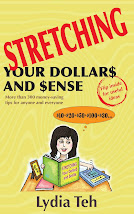

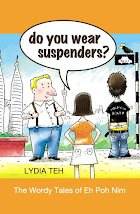

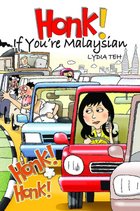


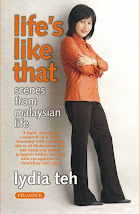
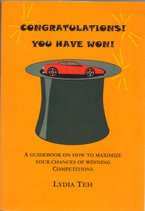
No comments:
Post a Comment